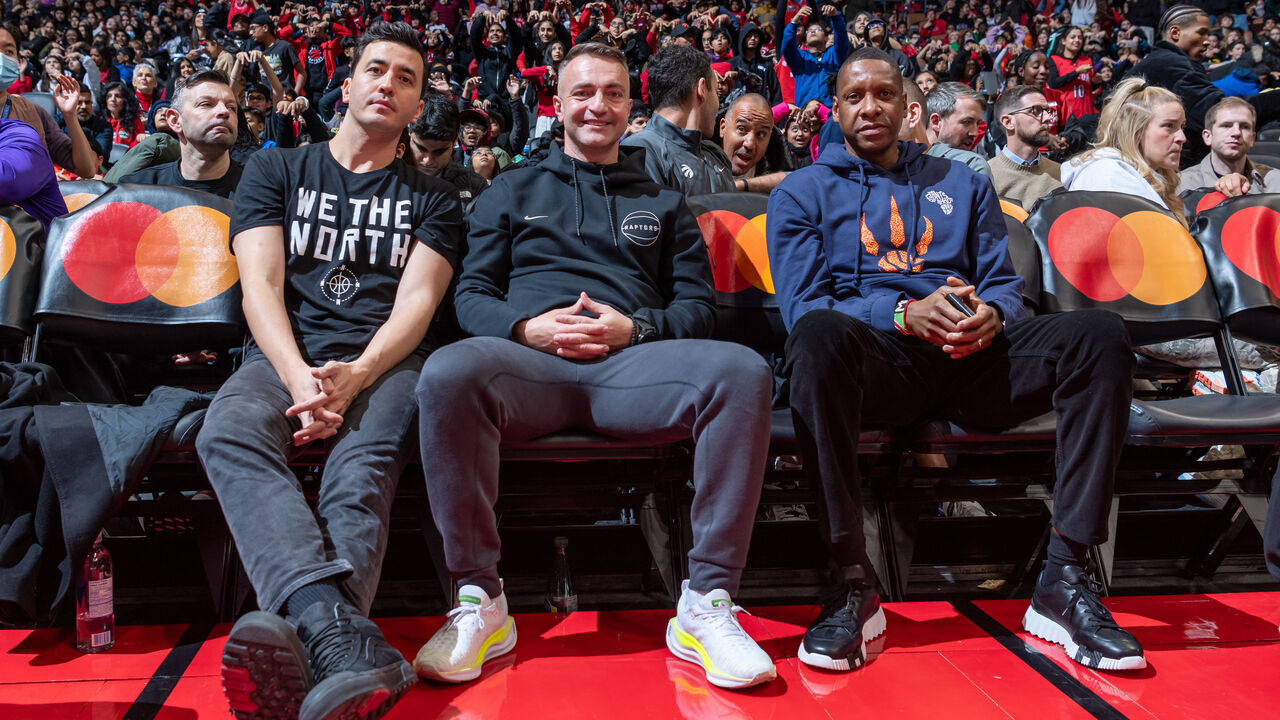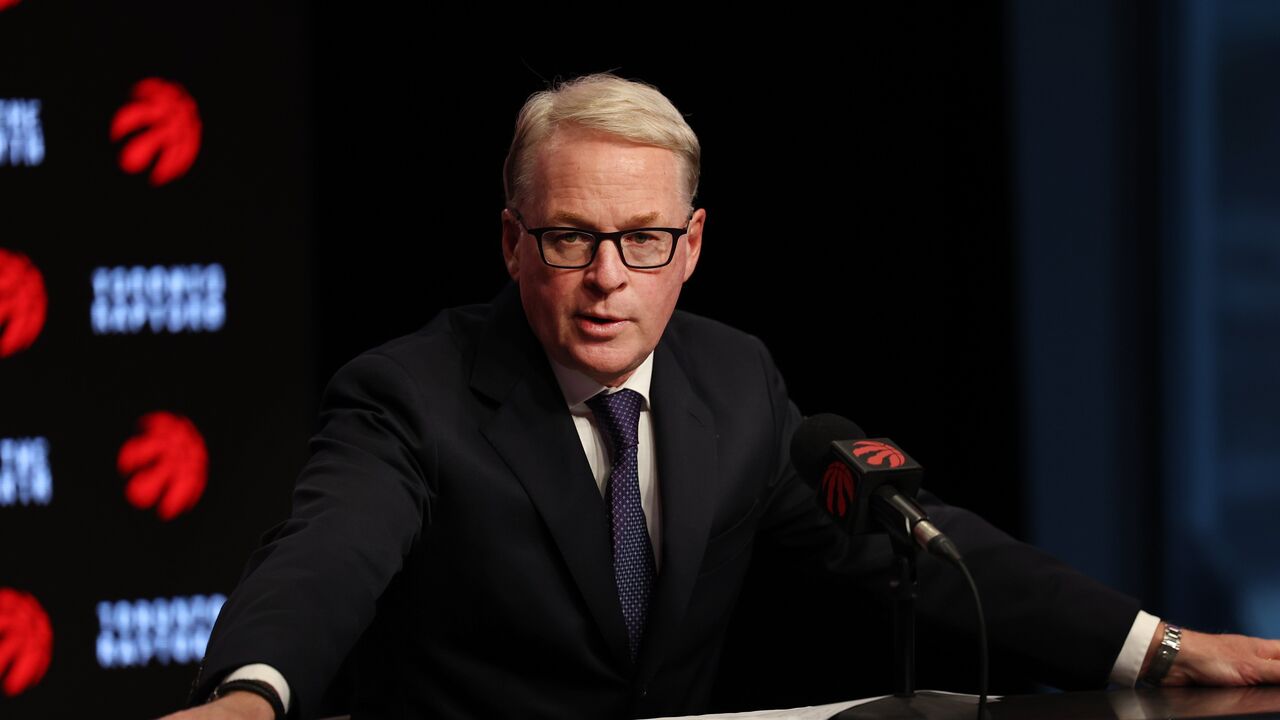Webster's 'promotion' shows who's really in charge of Raptors
When the ownership of the Toronto Raptors dumped Masai Ujiri as team president last month, it led to an obvious question: Was it a money thing? A personality clash with the new leadership at parent company MLSE? Was it a basketball decision?
And now, a partial answer: It wasn't a basketball decision.
MLSE's announcement on Monday that Bobby Webster would remain the Raptors' general manager and be given full control over the team's basketball operations - absent the team president title - was in many ways the choice of least resistance. Webster had been Ujiri's capo for eight seasons and has been with the team for 11 years. He's familiar with the players and staff, and he understands the unique challenges of being the NBA's only Canadian franchise.
But the quasi-elevation of the 40-year-old Webster - it's worth noting here that MLSE boss Keith Pelley says he searched for a new president before deciding not to fill the position - is also a strong endorsement of the basketball roster that Ujiri and Webster built.
A month ago, while everyone at MLSE was being polite upon Ujiri's departure and offering pleasantries about his many accomplishments, it was also possible to imagine that someone in the executive suites was displeased with the basketball product. Rogers Communications had just taken over majority control of MLSE, which includes a Raptors roster that is both quite expensive and somewhere between poor and unproven. A normal thing for ownership to do in this situation is to install a new top boss and let them go about fixing the previous guy's mistakes.

Giving Webster the keys to the franchise, though, makes it much more unlikely that there will be any kind of roster shakeup in the short term. He's been a key part of putting it together, unless he's only been riding shotgun to Ujiri all these years. In that case, there would be a much weaker argument for trusting him with the top job.
About that roster: it has more than $155 million committed to a presumed starting five of Scottie Barnes, Brandon Ingram, Immanuel Quickley, R.J. Barrett, and Jakob Poeltl, for each of the next two seasons, despite those players never having shared the floor.
Could that group, complemented by Toronto's depth pieces, make the playoffs next season in the injury-riddled Eastern Conference? Absolutely. But the team also comes with a boatload of questions. Can Barnes be a true top-scoring option? Can Ingram stay healthy? How will the pieces fit together? Can any of them live up to their contracts? And, perhaps most importantly, what happens if it doesn't work? The Raptors don't have many attractive trade pieces, given their associated salaries.
This is where a new boss might have come in handy, since it's easier for someone with no history with the roster to do some house cleaning. Webster will almost certainly see out the vision he shared with his former boss for a while yet.
It's a vision that's now been effectively approved by Pelley, MLSE, and Edward Rogers, the head of Rogers Communications. After five seasons without a playoff series win, the last two of them particularly dire, the top executives are at least willing to see if a Toronto team with better injury luck can be competent in a wide-open East.

Maybe the pieces will fit together better than expected, maybe some players will take big jumps forward, and maybe the Raptors will end up a much better team than anticipated. It's possible, at least, here in the heady days of August.
But all that would also be true if Ujiri were still in the building. He was running things when the Raptors waited too long to blow up what was left of their championship core, and he never really committed to a rebuild, bringing in players like Barrett, Quickley, and Ingram instead of draft picks. It was also Ujiri who seemed reluctant to overpay guys like Pascal Siakam and OG Anunoby and then ended up handing big deals to the players who form Toronto's new core. Webster was there for all of it, too.
Whether all of that will work is very much an open question. And maybe that, in the end, explains why Ujiri is no longer at the top of the organizational chart. The new MLSE leadership is willing to wait and see if the team he created can live up to his expectations. But they didn't want him around, with his outsized presence and his significant compensation package, if it didn't.
If this Raptors season doesn't work out, and the order comes from the top to make changes, there will no longer be a Ujiri-shaped impediment in the way. And there won't be some new boss, lured from another franchise with promises of full basketball control. There's just the guy they left in charge.
The Raptors were Ujiri's team for a long time. MLSE, Pelley, and Rogers run the show now.
Scott Stinson is a contributing writer for theScore.